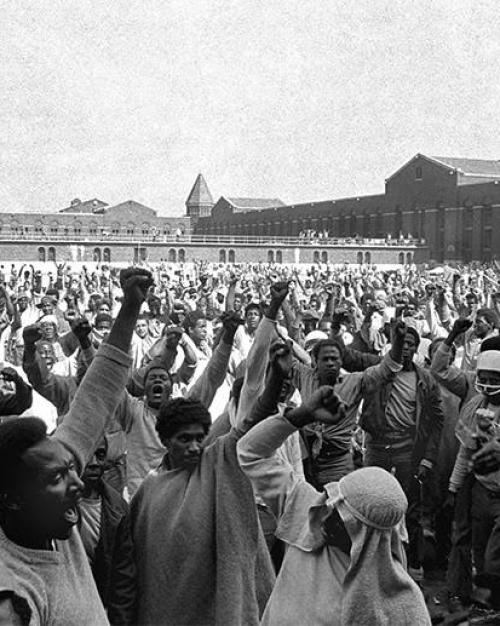The 1971 Attica prison uprising resulted in more than 40 deaths – the majority killed by law enforcement. Author Heather Thompson will speak about her award-winning 2016 account of the uprising, “Blood in the Water,” March 7 at 4:45 p.m. in Hollis E. Cornell Auditorium, Goldwin Smith Hall.
Sponsored by the American Studies Program as part of the interdisciplinary Freedom Interrupted series, Thompson’s talk is free and the public is welcome. A book-signing will follow, with copies of “Blood in the Water” available from Buffalo Street Books in Ithaca.
“Heather Thompson has written a book that every historian of the 1970s always wished would be written,” said Russell Rickford, associate professor of history. “It is difficult to exaggerate [its] importance. This is a story about racial hatred, the carceral state, and the deep sea of lies upon which they rest.”
Thompson’s work is the culmination of a decade of research into the uprising of 1,300 Attica inmates at the Attica Correctional Facility in upstate New York on Sept. 9, 1971. The book explores the years of mistreatment of the prisoners at the facility that led to the revolt, and new evidence revealing New York state’s attempts to cover up alleged crimes committed at the prison, through evidence tampering and murder of prisoners.
“Blood in the Water” has received numerous accolades including being a finalist for the Los Angeles Times Book Prize and the National Book Award, and was included on 14 Best Books of 2016 lists, including The New York Times, Newsweek and the Boston Globe. It has been optioned by TriStar Pictures and will be adapted for film by Anna Waterhouse and Joe Shrapnel.
Thompson is a history professor at the University of Michigan-Ann Arbor and edits a series for the University of North Carolina Press titled “Justice, Power and Politics.” She has written extensively on mass incarceration and prison revolts for The New York Times, Huffington Post, Newsweek and Time.
She has consulted on several documentary films including “Criminal Justice in America” and “And Still I Rise: Black Power to the White House.” She is also the author of “Whose Detroit? Politics, Labor, and Race in a Modern American City,” and the editor of “Speaking Out: Activism and Protest in the 1960s and 1970s.” She has served on the National Academy of the Sciences panel studying mass incarceration in the United States, as well as the Prison Policy Initiative, and in 2016 became president-elect of the Urban History Association.
Linda B. Glaser is a staff writer for the College of Arts and Sciences.
This article originally appeared in the Cornell Chronicle.




